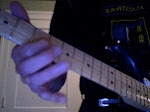I’ve completed grading all your essays and sent each of you
an edited copy. I was pleased with the quality of the essays and enjoyed
reading them. One feedback statement
applied to everyone’s essay: Your paper makes it clear you read the book
thoughtfully and were intellectually and emotionally engaged with the “soldier
girls” with whom it deals. I’m satisfied no one in our class will finish the
semester without an appreciation of what we ask for from those who serve in our
armed forces.
You can probably tell I spent considerable time editing the
essays, a reflection of the importance I place on developing excellence as a
writer. Being able to communicate effectively in writing will contribute
powerfully to your future success and each one of you has the intelligence and
talent to do this. I hope my feedback helps you as you strive to bring out your
best as a writer.
So, don’t be discouraged by the room for improvement in your
writing: becoming an excellent writer, like any form of achievement, is mostly
a matter of having a goal and working at it diligently over time. When I write,
I put a lot of effort into editing my own words. Getting the ideas down without
obsessing over making it perfect is the first step. Obsessing a little over
making it, not perfect (among mortals
there’s no such thing), but really fine is the next step.
The best essays were the ones where the writer performed the
second step. If you know someone who is a good writer, whenever possible have
them review your work and be grateful for the feedback they give you. There are
no writing problems that can’t be solved but you have to recognize them first.
And no matter how good you are, never rest on your laurels. Being alive means
being passionately engaged in a meaningful challenge.
As I went through, I tried several different approaches on
some of your sentences to come up with a smooth and impactful way to express
the thought. You may judge the results; but, my intention wasn’t to find the
perfect form of expression, it was to demonstrate the process. If you pursue
the goal of becoming an excellent writer, at some point you will find that polishing
your words so they shine has become automatic.
A few fine points I noted while grading the essays:
Soldier Girls is not
a novel (assuming Thorpe didn’t make the whole story up), the genre is literary
journalism. Good literary journalism does read like a novel and there are strong
elements of fiction in the writer’s efforts to recreate the experiences of the subjects
(or characters, if you will) based on her close familiarity with them. If you
enjoyed Soldier Girls and find the
experiences of contemporary warriors engaging, I recommend David Finkel’s Thank you for your service, another
example of high quality literary journalism genre about US soldiers returning
home from fighting in Iraq. We used it in Honors 2000 two years ago and enjoyed
a visit from Finkel to my seminar meeting to discuss PTSD.
Finding your personal voice as a writer is good; but, using
colorful vernacular language (e.g., hitting on, freaking out), as much as I
enjoy it, is generally not appropriate for a formal paper except in quotes from
the text.
The Guard is short for the National Guard. The States is
short for the United States of America. Therefore, both are capitalized. So are
the acronyms PTSD and IED.
Make sure every statement in your papers is factually
accurate. Fact-check yourself rigorously and look up words, phrases,
punctuation and style points habitually, if only to double-check. It’s amazing
easy with modern technology and I did this frequently while editing to make
sure I was giving you accurate feedback.
Apply all of the above to your research project and take
pride in your good work.
Owen Scott, Ph.D.
Instructor, Honors College, LSU

No comments:
Post a Comment